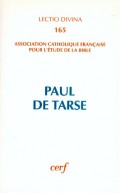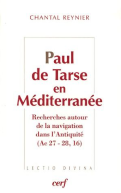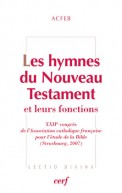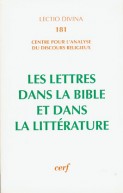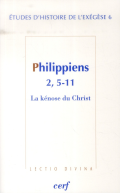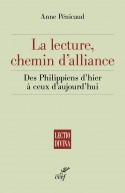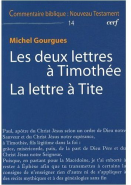L'épître aux Éphésiens
Collection Commentaire biblique : Nouveau test - N° 10
240 pages - oct. 2004
39,00€
Ce commentaire de l’épître aux Éphésiens propose une lecture qui manifeste la cohérence interne d’un texte difficile et indispensable à l’intelligence de la foi. Il est basé sur une étude du vocabulaire et de son organisation. La dynamique du texte est ainsi mise en relief. L’approche historique n’est pas négligée tant du point de vue de l’auteur que du point de vue de certains thèmes, spécialement ceux qui concernent l’éthique chrétienne, la société ou la communauté chrétienne elle-même. Le commentaire a recours, autant que possible, à la comparaison avec les écrits juifs mais surtout avec la littérature païenne contemporaine. Il s’attache à mettre en lumière les enjeux d’une lettre dont la place, essentielle dans la théologie, a été trop souvent évincée. Or, il est impossible de parler du Christ, de l’Église, de l’économie de la Révélation, de la vie chrétienne sans en référer à cette épître. En effet, de par sa situation tardive dans les écrits pauliniens, elle apporte des éléments nouveaux et déterminants à la réflexion théologique, qu’il s’agisse de l’élection dans le Christ, des implications de la Résurrection, des conséquences de la foi dans les mœurs, de la compréhension de l’Église dans son rapport au Christ. L'utilisation et le déploiement de la thématique du corps pour parler de l’Église et reconsidérer les rapports entre Israël et les Nations est non seulement novatrice mais aussi fondamentale pour renouveler la vision de l’Église. Enfin, ses relations avec les autres écrits pauliniens constituent un prolongement essentiel et indispensable à la Révélation.
--
This commentary on the Letter to the Ephesians presents an interpretation that reveals the inner coherence of what is a difficult text, though indispensable to our understanding of faith. Based on a study of the vocabulary used and the organisation of the text, it brings to light all its dynamism. The historical aspects have not been neglected; neither in respect of the author nor of certain themes, especially those that concern Christian ethics and society or the Christian community itself. The author makes comparisons, as often as is possible, with Jewish texts; and even more so with pagan writings of the period. The aim is to show the essential nature of this epistle whose key place in theology has been too long denied. For it is impossible to speak of Christ, of the Church, of the Revelation, of Christian life - without referring to this chapter. Because it is one of Paul’s later epistles, it brings new and decisive elements to theological reflection, whether we consider the election of Christ, the implications of the Resurrection, the moral consequences of faith, or the understanding of the Church in its relation with Christ. The use and the development of the theme of the body to speak of the Church, and to reconsider the relations between Israel and the nations, is not only innovating but also fundamental, if we are to renew our vision of the Church. In conclusion, the relation between this text and Paul’s other writings provides an essential and indispensable extension of the Revelation.
--
This commentary on the Letter to the Ephesians presents an interpretation that reveals the inner coherence of what is a difficult text, though indispensable to our understanding of faith. Based on a study of the vocabulary used and the organisation of the text, it brings to light all its dynamism. The historical aspects have not been neglected; neither in respect of the author nor of certain themes, especially those that concern Christian ethics and society or the Christian community itself. The author makes comparisons, as often as is possible, with Jewish texts; and even more so with pagan writings of the period. The aim is to show the essential nature of this epistle whose key place in theology has been too long denied. For it is impossible to speak of Christ, of the Church, of the Revelation, of Christian life - without referring to this chapter. Because it is one of Paul’s later epistles, it brings new and decisive elements to theological reflection, whether we consider the election of Christ, the implications of the Resurrection, the moral consequences of faith, or the understanding of the Church in its relation with Christ. The use and the development of the theme of the body to speak of the Church, and to reconsider the relations between Israel and the nations, is not only innovating but also fundamental, if we are to renew our vision of the Church. In conclusion, the relation between this text and Paul’s other writings provides an essential and indispensable extension of the Revelation.
- Dimensions : 155x230x12
- ISBN : 9782204075428
- Poids : 392 grammes
DU MÊME AUTEUR
Paul de Tarse en Méditerranée - LD 206
Recherches autour de la navigation dans l'Antiquité (Ac 27 - 28, 16)
de Chantal Reynier
290 pages - mars 2006
> VOIR TOUS LES LIVRES DE l'AUTEUR
DANS LA CATÉGORIE EXÉGÈSE BIBLIQUE
Israël dans la mission chrétienne
Lectures de Romains 9—11
de Marie-Hélène Robert
320 pages - oct. 2010


